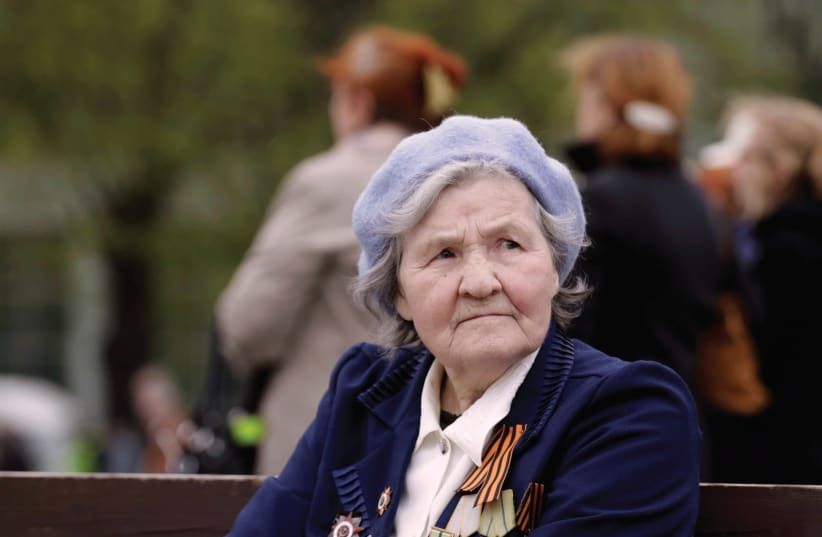Anyone who’s ever read a book about World War II will find most of these elements familiar. But Svetlana Alexievich’s The Unwomanly Face of War: An Oral History of Women in World War II is a very different kind of war book.
About a million women fought in the Soviet army during a war that spanned from 1939 to 1945, devastating much of Europe and reaching far into Russia. Unlike American and British women, who mostly served behind the lines, many female Russian soldiers were deployed into combat roles, including driving tanks and operating antiaircraft weapons. And unlike their male comrades, these women had to figure out how to manage menstrual periods, patriarchal attitudes and the disdain of civilian women who assumed the “front-line girls” were out to steal their men.
The book is composed of oral histories Alexievich gathered in the late 1970s and early ’80s. Alexievich, who was awarded the Nobel Prize for Literature in 2015, weaves their testimonies together until their individual voices become a haunting chorus. It’s a form she employs as well in her other books – Zinky Boys, Voices From Chernobyl and Secondhand Time – and which has led to her being described as the first journalist to win the Nobel. (Alexievich rejects that title, preferring to call herself a witness.)
Originally published in Russian in 1985, an earlier English edition came out in 1988, during the waning days of the Soviet Union. Both were heavily censored, as Alexievich notes in an introductory chapter. Here, translators Richard Pevear and Larissa Volokhonsky, noted for their translations of Tolstoy, Chekhov and others, restore an unflinching look at what women went through while fighting the Nazis.
We’ve been writing and reading about war since we began reading and writing. But the vast majority of war books are written, Alexievich points out, in “a man’s voice.” In undertaking the hundreds of interviews that led to this vast, emotionally riveting account, the author wants us to consider the women’s voices.
“Women’s stories are different and about different things,” Alexievich writes. It’s an argument some readers will find simplistic or even sexist. At the same time, though, it’s clear, upon reading these scores of voices, that the women shared some experiences men could not: the trauma of losing one’s long braids; the way menstrual blood dried on trousers, leaving them stiff as if starched.
Interviewed by Alexievich decades after the war, the women aren’t simply recalling the war; rather, their testimonies are about their own younger selves, their lives as young women in a younger, still idealistic Soviet Union. Many joined unspeakably young, with romantic ideas about being girl warriors: One tells Alexievich how she “imagined myself in the role of Joan of Arc.”
Many of their parents had fought in the Russian Revolution; they still believed. “I didn’t even think twice,” a pilot recalls. “We were brought up that we and the Motherland were one and the same,” says a combat nurse.
Unlike the American eye view of World War II, here we read of a local, intimate, inescapable war. After battling on the front lines, these soldiers returned to villages that had been burned down, mothers and siblings who had starved to death.
Many describe disillusionment with the Motherland, especially in a postwar world that treated many female soldiers poorly. It’s not surprising that Soviet censors objected.
At a time when Americans and Russians once again find themselves in a strange relationship – not a Cold War, but not the allies they were during World War II – there’s something powerful about such close access to these women’s feelings. The deceptively simple form Alexievich deploys allows for an emotional range from utter despair to a kind of transcendent hope.
“Do you know how beautiful a morning at war can be? Before combat,” one army surgeon says, “you look and you know: this may be your last. The earth is so beautiful.”
(Newsday/TNS)
